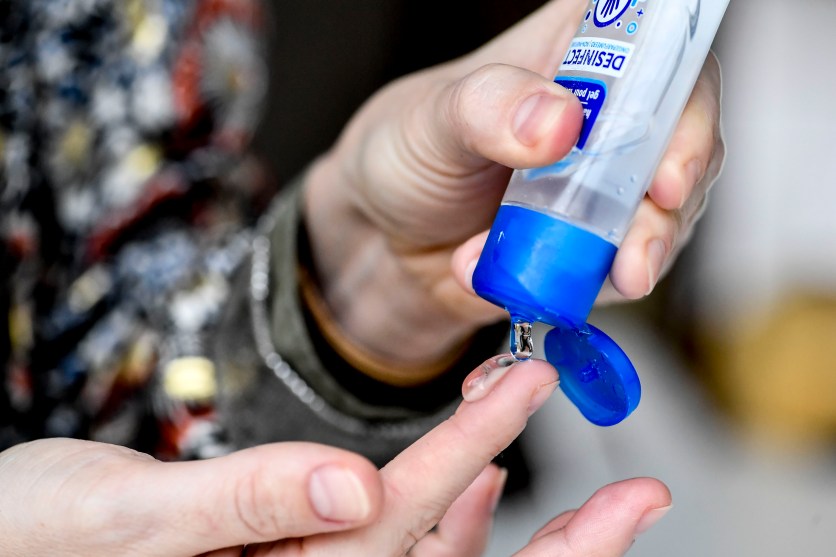
Alex Tai/SOPA Images/ZUMA
On Monday morning, the chief medical officer of CVS Health sent an email containing tips for combating the coronavirus to the company’s 300,000 employees. The text of the email included many common-sense suggestions, like practicing social distancing and disinfecting frequently touched surfaces. But some of the tips are strikingly similar to a viral Facebook post that has been circulating for weeks—and they have no basis in science.
Here’s an excerpt from the email:
One of our health centers distributed tips regarding self-care and suggested that we consider the following when thinking about symptoms of the common cold vs. the coronavirus:
- If you have a runny nose and sputum, you likely have a common cold.
- Coronavirus pneumonia presents as a dry cough with no runny nose, often accompanied by a fever. If you experience these symptoms, you should call your doctor.
- Drinking warm water is an effective way to wash the virus into your stomach, where it is killed. Stay hydrated and get plenty of sleep.
- You should wash your hands frequently.The virus can only live on your hands for 5-10 minutes, but a lot can happen during that time: you can rub your eyes or touch your nose or mouth unwittingly.
- Most importantly, remember that this illness is very mild in 80% of people who have it, and our children to not appear to be getting sick at all except in very rare cases.
The first two bullet points sound a lot like the message that was being passed around on Facebook last week, which stated, “If you have a runny nose and sputum, you have a common cold. Coronavirus pneumonia is a dry cough with no runny nose.” As I reported last week, the three most common symptoms of COVID-19 are fever, cough, and shortness of breath, according to the CDC—but that doesn’t mean you should rule out the coronavirus if you have a runny nose as well.
But the third bullet point—that drinking warm water is an effective way to wash the virus into your stomach, where it is killed—is false. “The temperature of your drinking water has no impact on getting infected, treating infection, or rinsing the virus from your system,” says Brandon Brown, an epidemiologist and associate professor at the University of California, Riverside. “Drinking an incredible amount of water also will not help. It is important to stay hydrated at all times, irrespective of any epidemic.”
And, while washing your hands frequently is essential advice, it’s difficult to say exactly how long the virus can live on them. “How long the virus can live on hands is not as important as what you do with your hands,” says Brown. “If you are washing your hands regularly, the virus will not live on your hands for a long time. The virus can live on surfaces for days, and we are constantly using our hands and touching surfaces. More important than thinking how long the virus lives on your hands is to avoid touching your eyes, nose, and mouth with unwashed hands.”
As for the last bullet point: One in five people who are infected with the coronavirus, or 20 percent, require hospitalization, according to the World Health Organization. The so-called “mild” cases include everything that doesn’t land someone inpatient at a hospital, and can include serious illnesses such as walking pneumonia. This is the word from the Centers for Disease Control and Prevention:
Reported illnesses have ranged from very mild (including some with no reported symptoms) to severe, including illness resulting in death. While information so far suggests that most COVID-19 illness is mild, a report out of China suggests serious illness occurs in 16% of cases. Older people and people of all ages with severe chronic medical conditions — like heart disease, lung disease and diabetes, for example — seem to be at higher risk of developing serious COVID-19 illness.
CVS’s Senior Director of Corporate Communications confirmed that the internal email, which Mother Jones reviewed, was authentic. “This memo is part of an ongoing effort in developing travel, Work from Home, and other HR-related guidance to help employees stay safe and healthy as the COVID-19 pandemic continues to evolve,” he wrote in an email.
When misinformation about the coronavirus seems to be spreading as fast as the illness itself, it’s important to question everything—even tidbits of misleading information sandwiched between truths—not from official sources. So go ahead, drink a glass of water with ice.


















